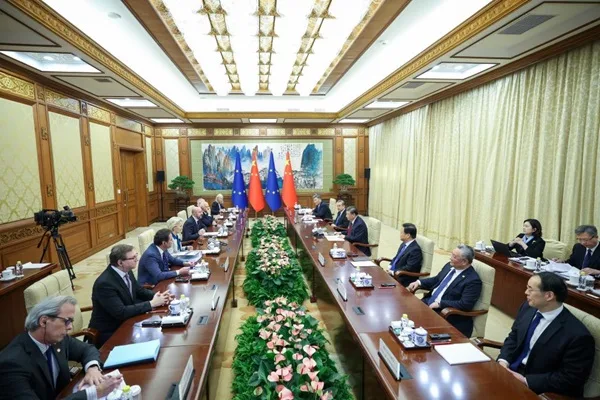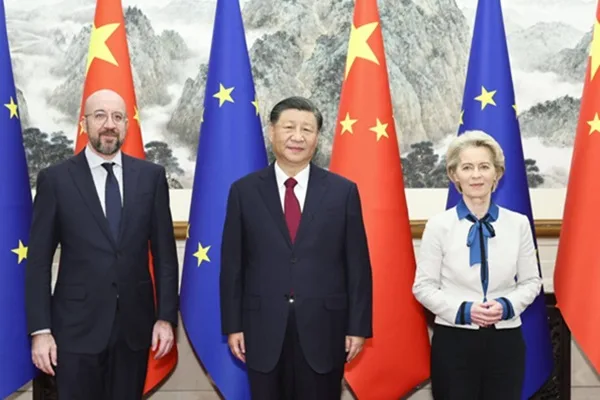China-EU Summit Takes Place Amidst Geopolitical and Trade Tensions
As a regional bloc, the EU is 2nd largest trading partner of China, behind ASEAN. From the other perspective, China is the largest trading partner of the EU, having overtaken the USA in 2021.
In 2022, the trade volume between the EU and China amounted to EUR 857 billion, with China retaining nearly USD 400 billion in trade surplus over EU. Trade in services added another EUR 108 billion to the economic exchanges.
“It is incumbent on both sides to provide greater stability for the world and stronger impetus for development.”
Chinese President XI Jinping
The EU supply Airbus aircrafts to China and even some key components for the Chinese indigenous plane, the COMAC C919. On the other hand, China is eyeing the EU market for its Electric Vehicles (#EV).
With a trade deficit of nearly USD 400 billion, it is understandable that the EU is calling for a ‘more balanced and reciprocal’ economic relationship. In particular, the EU has expressed concerns about Chinese government subsidies to Chinese EV manufacturers which are allegedly ‘dumping their products’ on the EU market. China has refuted such claims and asserted that EV made in China are preferred by consumers due to their technical innovation and value for money.

China also controls the global market for #CriticalMinerals including Rare Earth Elements (#REE) that go into EV and other hitech products. Therefore, the EU has initiated a #derisking policy to diversify and secure its global supply chain (#GSC). The EU has also encouraged its member states not to procure telecom equipment from Chinese vendors Huawei or ZTE, by putting forward network security concerns.
“The EU will not stand idly by and allow its industrial base to be eroded.”
EU Chair Ursula von der Leyen
On the geopolitical front, EU and China have found themselves on diametrically opposite sides on issues in Ukraine and in Gaza. The EU expressed deep concerns about China supplying military gear to Russia and purchasing more Russian gas.
Regarding the Taiwan question, the EU expressed concerns about changing the status quo through the use of force by China. From the Chinese perspective, Taiwan is a renegade province and is an internal issue that does not require the ‘interference of foreign powers.’
A few days before the Summit, China announced the easing of visa requirements for EU tourists. On the other hand, Italy made official its withdrawal from BRI, the flagship geoeconomic initiative of China. In response to China’s Belt and Road Initiative (#BRI), the EU has also launched its own Global Gateway Initiative (#GGI).
The differences between two sides seem quite wide and both sides did not expect significant progress or major outcomes from this 24th round of meetings. However, areas of commonality potentially exist around #ClimateChange, possibly via nuclear power, and #AI governance.

